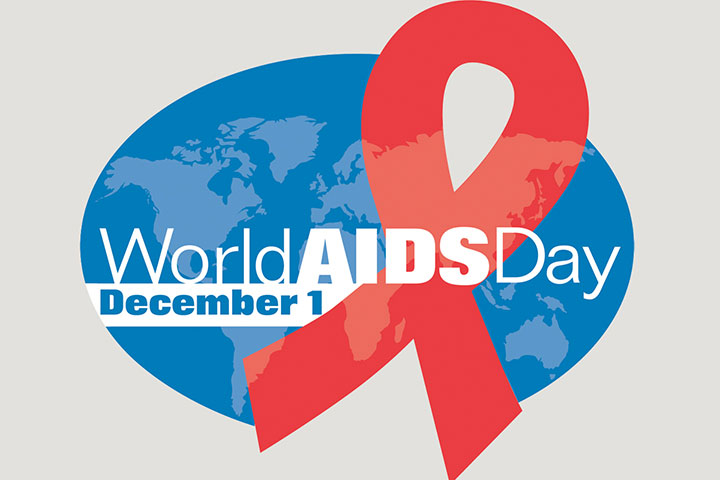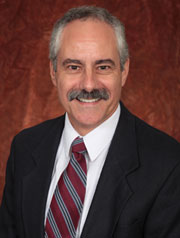
Florida State University’s Dr. Jonathan Appelbaum remembers that day in 1981 when a young patient was admitted to the hospital with a rare case of pneumocystis pneumonia. Appelbaum, an internal medicine resident at the time, and his colleagues did not recognize the man’s illness as an AIDS case.
No one would have. Not much was known at that time about the mysterious pneumonia cases claiming an increasing number of lives around the country. In June 1981, the U.S. Centers for Disease Control and Prevention first announced symptoms of the unknown — and deadly — disease. Appelbaum’s young pneumonia patient did not survive.

As World AIDS Day 2016 raises awareness about the disease on Thursday, Dec. 1, Appelbaum — a professor of internal medicine at FSU — considers the progress researchers have made battling HIV/AIDS. It was a death sentence 35 years ago. The disease has killed about 660,000 people in the United States over that time, according to the CDC.
Today, there’s a stark contrast. While an estimated 1.2 million people in the U.S. are infected with HIV, many live relatively normal lives. HIV infection is no longer a death sentence. Patients are able to manage it like a chronic disease.
“The average life expectancy in the United States for someone is around 79,” said Appelbaum, who has researched the disease throughout his career. “If you’re infected with HIV at age 20, and you get care and follow up with medical appointments and take your medications, your average life expectancy now is 71. That’s certainly much better than the old days when if you got infected at 20, you were lucky to live to 30 to 35. It was about a 10 to 15-year lifespan.”
The progression of HIV/AIDS from certain death to treatable disease has likely resulted in less awareness and urgency over the issue.
New infections remain high despite decades of public health messaging. Between 40,000 and 50,000 people in the United States are infected with HIV every year. Of the 1.2 million people living with the virus in the U.S., one in eight don’t know they’re infected, according to the CDC.
Medications to treat HIV are much better today, but the search for a vaccine or cure is still years away.
“This is a really difficult virus to eradicate,” Appelbaum said. “It has some unique properties as opposed to other viruses like those causing colds or flu. This is a unique, innovative virus. It does a lot of unique things to the body.”
Appelbaum doesn’t think researchers will develop an HIV vaccine or cure in the next 5 to 10 years.
But new treatments are showing promise in the effort to prevent the spread of HIV. A strategy called “treatment as prevention” is getting good results among HIV patients taking antiretroviral medications. The medications are so effective at reducing levels of the virus in blood and genital fluids, the HIV-positive person is much less likely to transmit the disease. That’s an important reason, Appelbaum said, why someone should immediately start taking anti-HIV medication after getting the diagnosis.
Another promising HIV-prevention strategy is called PrEP — Pre-Exposure Prophylaxis. PrEP is a special pill for someone who is not infected with HIV, but is at risk for contracting the virus. The PrEP pill — a combination of two medications — is taken daily, or sometimes intermittently, and it helps protect a person from contracting HIV.
Florida State medical student Tim Walsh was recently recognized by the American Medical Association for his work to increase awareness of the PrEP pill.
“PrEP’s benefits are really exciting,” Walsh said, “because it’s not only preventing HIV, but it gets men in to see a primary care provider every three months for testing. For young men, that’s not common.”
Eric Walker is another FSU medical student working to increase awareness about the disease. For the second year, he has helped organize a candlelight vigil at the College of Medicine in an effort to help end the stigma of HIV/AIDS and make people aware of preventive measures.
“The whole purpose of this program was to call upon various allies in the community to come together in a safe place to learn how we can advocate for a community that sometimes can’t advocate for themselves,” Walker said.
The HIV/AIDS Awareness Candlelight Vigil will be held at 6 p.m., Friday, Dec. 2, in the atrium of Florida State’s College of Medicine. The event will include the latest information about HIV/AIDS prevention, student performances and remarks.
Preceding the vigil, free HIV and syphilis testing will be offered from 10 a.m. – 5 p.m.




